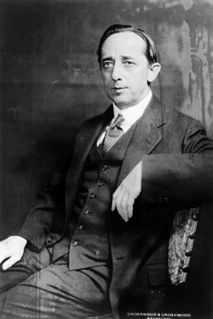A Quote by Mahatma Gandhi
A full and candid admission of one's mistakes should make proof against its repetition.
Related Quotes
... I don't think anybody should avoid mistakes. If it is within their nature to make certain mistakes, I think they should make them, make the mistakes and find out what the cost of the mistake is, rather than to constantly keep avoiding it, and never really knowing exactly what the experience of it is, what the cost of it is, you know, and all the other facets of the mistake. I don't think that mistakes are that bad. I think that they should try and not do destructive things, but I don't think that a mistake is that serious a thing that one should be told what to do to avoid it.
There are, of course, inherent tendencies to repetition in music itself. Our poetry, our ballads, our songs are full of repetition; nursery rhymes and the little chants and songs we use to teach young children have choruses and refrains. We are attracted to repetition, even as adults; we want the stimulus and the reward again and again, and in music we get it. Perhaps, therefore, we should not be surprised, should not complain if the balance sometimes shifts too far and our musical sensitivity becomes a vulnerability.
The goals we get against are not really that people outplay us. I think it's the mistakes we make. It's when we have the ball at the back, we lose a few balls sometimes - that's also the risk with the way we play. It's not like they created the chance. We make two mistakes, and then we get the goals against.
The only way to maximize group creativity—to make the whole more than the sum of its parts—is to encourage a candid discussion of mistakes. In part, this is because the acceptance of error reduces cost. When you believe your flaws will be quickly corrected by the group, you're less worried about perfecting your contribution, which leads to a more candid conversation. We can only get it right when we talk about what we got wrong.
We should face reality and our past mistakes in an honest, adult way. Boasting of glory does not make glory, and singing in the dark does not dispel fear. King Hussein Reason and free inquiry are the only effectual agents against error. - Thomas Jefferson We have made mistakes. In our haste to do all things for all people, we did not foresee the full consequences of our actions. And when the people raised their voices, we didn't hear. But our deafness was only a temporary condition, and not an irreversible condition.
Be proud of your mistakes. Well, proud may not be exactly the right word, but respect them, treasure them, be kind to them, learn from them. And, more than that, and more important than that, make them. Make mistakes. Make great mistakes, make wonderful mistakes, make glorious mistakes. Better to make a hundred mistakes than to stare at a blank piece of paper too scared to do anything wrong.










































